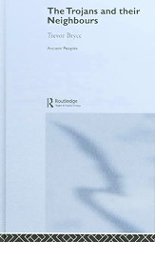- Taizong’s hell – The Chinese hell scrolls presented here treat the afterlife as a spectacle, as a display intended for public consumption. Ostensibly based on popular tales such as Tang Emperor Taizong's visit to hell in the first half of the seventh century C.E., they attract their viewers through their dark and yet cartoonish torture scenes, appealing to the same morbid curiosity fed by gothic novels, horror movies and Halloween ghosts in the West. Yet their main function was not entertainment but didactic, propagating a basic message of retribution. Every act of goodness will be rewarded; every act of evil will be justly answered.
- Tax Research UK » The personal tax statement George Osborne doesn’t want you to see – Linkis.com – Add together the cost of subsidies to banks, the subsidy to pensions and the subsidy to savings (call them together the subsidy to the City of London) and they cost £103.4bn a year – more than the cost of education in the UK.
- Greek Bronze Age ended 100 years earlier than thought, new evidence suggests – Conventional estimates for the collapse of the Aegean civilization may be incorrect by up to a century, according to new radiocarbon analyses. While historical chronologies traditionally place the end of the Greek Bronze Age at around 1025 BCE, this latest research suggests a date 70 to 100 years earlier.
- Leefbaar hangt stad vol met Pieten – NOS Nieuws – In Rotterdam zijn honderden Zwarte Piet-poppen opgehangen aan lantaarnpalen. Om hun nek hangt een briefje met de tekst "Wij willen blijven". De pietjes zijn door de stad verspreid door de politieke partij Leefbaar Rotterdam.
- Budapest autumn: hollowing out democracy on the edge of Europe | World news | The Guardian – Eva Acs, an agronomist who has run the thriving organic farm for 22 years, is at her wits’ end. “The state just took the farm away. We were absolutely punished and rubbed out. Then the private security firms came in and closed down the roads and blocked the tractors. The new owners destroyed all our plants and crops. Just to bankrupt us and hurt us.”
Articles with the Tag Ancient History
The Trojans and their Neighbours – Trevor Bryce

The Trojans and their Neighbours
Trevor Bryce
225 pages including index
published in 2006
The cover looks like it should belong on the course book of a not particularly interesting IT certification course, but don’t let that fool you. Behind it hides one of the more engaging and interesting history books I’ve read in the past year or so. Which came as no surprise to me, as I had already read one of Trevor Bryce’s other history books, The Kingdom of the Hittites. The cover therefore couldn’t scare me off…
The subject itself helps as well of course. The story of Troy, the city at the heart of Homer’s Iliad, thought to be no more than a myth until Schliemann actually dug it up remains endlessly fascinating to anybody interested in ancient history. As Bryce mentions, even today the question of whether or not the Troy Schliemann dug up was the “real” Troy, Homer’s Troy is still hotly debated. But as Bryce argues, this is also the least interesting question you can ask about the actually existing Troy. Troy existed for several thousand years and was a flourishing community long before and after the Trojan War supposedly happened. With an emphasis on the Bronze Ages, The Trojans and their Neighbours attempts to put straight the real history and position of Troy — was it as important a city state as you would assume from Homer, or just another smallish Bronze Age settlement, and what were its relations with its neighbours?